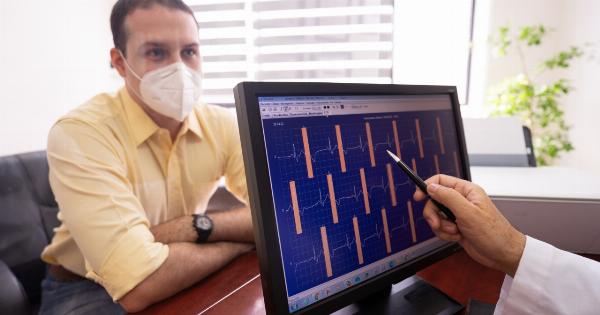Blood pressure is measured in millimeters of mercury (mmHg) and is recorded as two numbers, systolic pressure (top number) and diastolic pressure (bottom number), indicating the force exerted by the blood on the walls of the arteries.
Normal blood pressure is 120/80 mmHg, and higher blood pressure is considered hypertensive, which increases the risk of developing cardiovascular diseases, including heart disease and stroke. With the growing prevalence of hypertension, much research has been conducted to find effective ways to control high blood pressure.
The New Research
A new research study, published in the European Heart Journal, emphasizes the importance of taking blood pressure medicines at night, for better blood pressure management.
The study showed that taking high blood pressure medication in the evening is more effective, in reducing the risk of hypertension-related complications such as heart attack, stroke, and renal failure, compared with taking medication in the morning.
The Study Participants
The study involved over 19,000 participants who were hypertensive patients, aged 65 years and above, with a mean blood pressure of 145/82 mmHg.
The participants were randomly divided into two groups: one group was asked to take their medications in the morning, while the other group was advised to take their medications at bedtime.
The Results
After an average of six years of follow-up, the study found that those patients who take their hypertensive medication at night reduced their risk of developing heart disease by 22%, stroke by 44%, and heart failure by 42%, compared with those who took the medication in the morning. The researchers also observed that the patients who took their medication at bedtime had a 31% lower risk of dying from cardiovascular causes, compared with those who took their medication in the morning.
The Possible Causes
Although the exact mechanisms explaining why evening administration of hypertensive medication is more effective are not yet known, some researchers suggest that there could be several contributing factors.
For example, one possible explanation is that blood pressure naturally dips at night, called “nocturnal dip.” This nocturnal dip in blood pressure provides a protective effect that is absent in hypertensive patients. When medication is given in the morning, this natural dip in the blood pressure is replaced by a peak level of blood pressure, which can contribute to cardiovascular risks.
Another possible mechanism is that blood levels of the medication may be better controlled when taken at night. Studies have shown that the duration of medication effectiveness can vary, depending on the time of administration.
Nighttime administration may allow for a prolonged and enhanced effect of the medication, resulting in better blood pressure control. Additionally, some drugs, such as angiotensin-converting enzyme (ACE) inhibitors, have been shown to have a greater benefit when taken at bedtime, which could also explain why nighttime administration is more effective.
Cautions
It is important to note that the new research only applies to hypertensive patients aged 65 years and above and taking certain types of blood pressure medications, such as ACE inhibitors or angiotensin receptor blockers (ARBs).
Therefore, patients should consult with their doctors before changing their medication administration. Moreover, the study only assessed the effects of the medication and did not account for other factors, such as lifestyle modifications or adherence to medication regimens, which may also contribute to better blood pressure management.
Conclusion
High blood pressure is a significant health concern that can lead to serious health complications. The new research study emphasizes the importance of taking hypertensive medication at night, for better blood pressure management.
The study found that taking hypertensive medication at bedtime is more effective, in reducing the risk of hypertension-related complications such as heart attack, stroke, and renal failure, compared with taking medication in the morning. The findings of the research suggest that healthcare providers should consider recommending bedtime administration of hypertensive medications, particularly for older hypertensive patients.


























